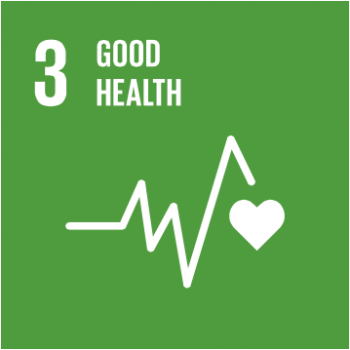Treating the Doctor: Adding Future-Proof Tools to His/Her Medical Bag
TIM VAN DE GRIFT (YOUNG PROFESSIONAL), RENSKE KROEZE (YOUNG PROFESSIONAL)
SUSTAINABLE DEVELOPMENT GOAL 3:
Verzeker een goede gezondheid en promoot welvaart voor alle leeftijden
https://unric.org/nl/sdg-3
Several emerging global trends pose significant challenges to our current healthcare system. In the developed world an aging population leads to an increased number of chronic diseases and so health issues are becoming more and more multifactorial. Moreover, the demands of a modern lifestyle mean increased stress and are a burden on mental health; health issues, both mental and physical, are becoming increasingly intertwined (see also the work of Machteld Huber on a modern definition of health[1]). Globally, trends, such as urbanization, put people at risk for infectious disease outbreaks. Add to the mix the increasing scale and costs of many healthcare systems, and it is becoming a significant challenge to keep on ensuring healthy lives and promoting well-being of all ages[2].
A new kind of adaptive healthcare professional could be a significant lever in ensuring health and well-being in all sorts of populations and environments. In order for them to be able to accommodate these challenges, the toolkit of professionals needs to be broadened from being able to only cure isolated, well defined diseases, as well as enhance the ability to see the multidimensional and dynamic picture of individual human beings and adapt care practices accordingly.
Healthcare professionals need to study specialist knowledge, as well as develop empathy, creative thinking, and ‘maker skills’ to adapt and positively shape the way care is provided. Empathy enables healthcare professionals to place themselves in their patients’ shoes and identify the core of a patient’s ill-being, motivations, and environmental constraints. Healthcare professionals should become more familiar with creative thinking and need skills in active learning to transform these ideas into practical solutions in order to translate these insights into more effective ways of care delivery. As such, meeting the sustainable development goals on health and well-being does not necessarily (only) mean a systems redesign, but it could also mean designing daily practices and tools that can make a difference in the quality of care.
The best time to start developing these skills is during the medical education and clinical training of all medical professions, which range from nursing to psychology. We experimented with teaching empathy, creative thinking, and active learning, to medical and psychological residents and students by linking them with artists. The aim was for the students to learn from the artists’ radically different perspective to better understand and promote health and well-being. In one project, in collaboration with the University of Amsterdam and the Gerrit Rietveld Academie of Arts, future healthcare professionals and policy makers collaborated with art students in solving real issues of Dutch healthcare organizations, together going through the process of empathy and creativity to produce better methods of care[3]. In another initiative, psychiatry residents learned how to see their patients through the eyes of an artist, thereby gaining different perspectives on their patients’ capabilities and worries, while sharpening their view on mental healthcare practices[4]. Both projects were reviewed positively and led to increased ownership and collaboration around improving healthcare practices by the future professionals. The twelve new care concepts developed by these teams are the beginning of a new generation of Dutch doctors, psychologists and policy makers that look at healthcare and patients differently, and have the tools to design and experiment with better ways of delivering healthcare.
Works as a medical doctor and PhD candidate at the VU medical center and develops crossover concepts in healthcare (education).
Trained as a psychologist and political scientist and now works as a strategy consultant after developing projects aimed at innovating the Dutch healthcare system.
Referencies
1 Huber, M., Knottnerus, J. A., Green, L., van der Horst, H., Jadad, A. R., Kromhout, D., … & Schnabel, P. (2011). How should we define health?. BMJ, 343.
2 Van Rooijen, M., Goedvolk, R., & Houwert, T. (2013). A vision for the Dutch health care system in 2040: towards a sustainable, high-quality health care system. In World Economic Forum, McKinsey & Company.
3 van de Grift, T. C., & Kroeze, R. (2016). Design Thinking as a Tool for Interdisciplinary Education in Health Care. Academic medicine: journal of the Association of American Medical Colleges.
4 http://theartofimpact.nl/projecten/het-vijfde-seizoen/ (in Dutch)
